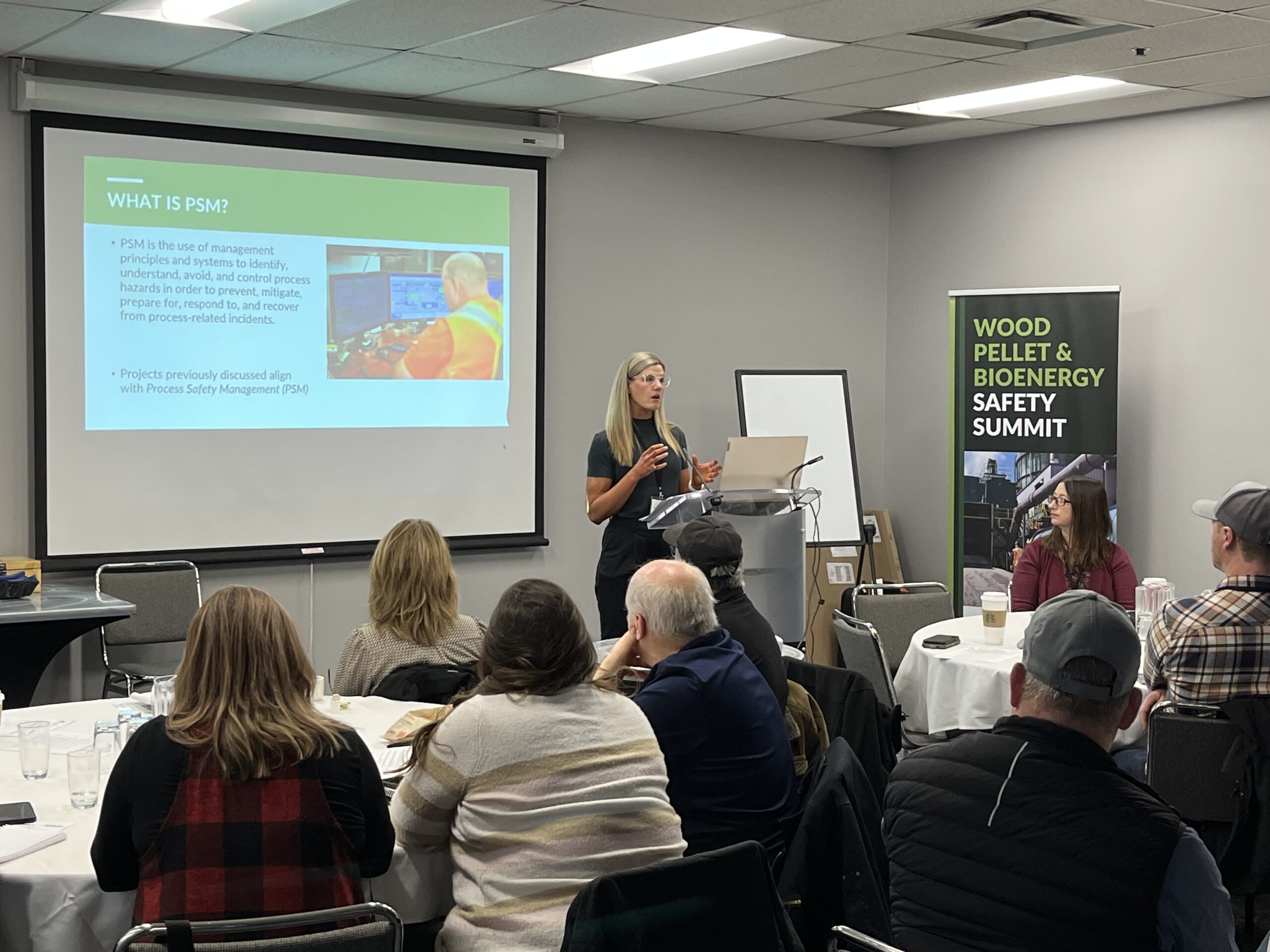In November 2023 more than 50 participants—from wood pellet producers, operators, suppliers, and regulators—from across Canada met in Prince George, B.C. to discuss evolving trends and regulatory topics. If you missed this event or want to share the discussions with colleagues, you can find a full report summarizing the Wood Pellet and Bioenergy Safety Summit on pellet.org. Live polling was conducted throughout the summit to capture participants’ observations, recommendations and experiences.
The summit provided an update on current safety initiatives that are creating a safer foundation for our industry. We heard from operators about their key learnings and experiences to date and identified priorities for 2024. We also examined future trends in safety, such as process safety management (PSM), how it will impact the way workplace hazards are handled, and what the industry can do to be prepared for potential new PSM regulations.

The afternoon sessions involved deep dives into the critical element of process safety culture. Shaw Renewables and WPAC Safety Chair Julie Griffiths presented on the importance of a strong safety culture and highlighted incident case studies described by the US Chemical Safety Board, along with her personal connection to the tragic Westray Coal Mine explosion in 1992.
Participants used the live polling app to respond to the question What do you think is most important thing for process safety culture? It’s clear that buy-in at all levels and communication are key to the success of any safety initiative.
The remaining afternoon sessions were focused on the next steps for PSM implementation with Kayleigh Rayner Brown, MASc, P.Eng. of Obex Risk, sharing the proposed next steps and outlook for PSM in the sector. Links to these publicly available resources are found on the PSM Implementation page on WPAC’s website.
On the second day, participants attended a WorkSafeBC workshop about the Human Factor Approach to Safety and the 7-step Methodology to Improve Worker Interactions to Drive Safety. The afternoon involved hands-on, practical breakout activities to apply tools to help prevent human errors.
Closing remarks at the end of the day included a call to action to take a look at the way equipment and processes are designed and challenged the status quo to improve the quality of workplaces for everyone.
The two-day event was hosted by the Wood Pellet Association of Canada’s (WPAC’s) Safety Committee, in cooperation with the BC Forest Safety Council (BCFSC), WorkSafeBC, and media partner Canadian Biomass. We gratefully acknowledge WorkSafeBC for its generous funding of this program.
To view the full report on the summit, click here.

